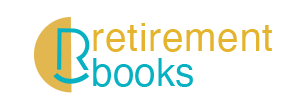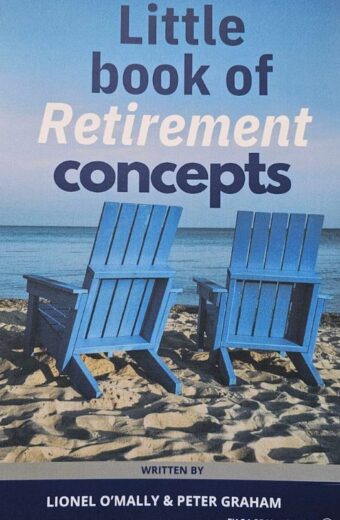When it comes to writing resumes, there are many schools of thought and no shortage of experts in the field. PLUS40 believes in an unconventional approach when thinking about what to present in your resume.
Whilst many recruitment consultants differ on the content of resumes, we all agree on a couple of key points:
- Keep it concise! You should aim for a resume that is NO LONGER than 3 A4 pages maximum. A 2 page resume is even better.
- Keep it focused! Only talk about accomplishments and important facts – don’t waffle on.
These are the 2 most important points of resume writing, as a long or waffly resume will make not just a consultant’s eyes glaze over, but more importantly, the prospective employer’s eyes too!
The true aim of a resume is to provide enough information for the consultant and prospective employer to be interested in you and want more details. This will help ensure at least an investigative phone call, if not the main goal of an interview! That’s where you flesh out details against specific questions. (We’ll talk in detail about interview techniques later)
OK – so we’ve established that we need a concise and punchy resume, so what should you include? Traditional recruitment consultants advising younger candidates working their way up the corporate ladder suggest the following:
Stick to what you’ve accomplished in the last 5 years – that’s all that is relevant. And tailor a different resume for each industry or position you are applying for.
Well PLUS40 are the heretics in the industry who contradict that advice for skilled and experienced workers. We believe that you need to inform prospective employers of all the skills you have gained over your career, as that is the key benefit you will be bringing with you to the job. You might still tailor the resume to a specific industry, but it is much easier to have your career spelled out in reverse chronological order – in its entirety – so that the employer will know what added benefit they’ll get!
Sure – provide more detail on what you’ve done in the most recent 5 years of employment, but include the rest in bullet point form too. So here’s the detail on how to construct that resume:
Personal details
List your personal details – name, address, phone, e-mail and other relevant contact details. Listing your age and marital status is NOT required, as it is illegal for an employer to ask these details as part of Anti-Discrimination Laws. However we believe it is optional to include, as they employer will find out eventually. Double check the details – I’d hate you to miss an interview opportunity due to a mistake in your phone number or e-mail address!
Educational Background
Here is where you list what we call traditional educational history like your school, TAFE or university history. Stick to brief details only covering the year of completion, the qualification and the institution. For example:
1974 Bachelor of Arts (BA), Macquarie University
1971 Cert IV in Counseling, TAFE North Sydney
1970 Higher School Certificate, Manly Boys High
So stick to the secondary and tertiary qualifications you have and save other vocational qualifications for the later section relating to Courses completed.
Employment History
This is the critical information of your resume! A prospective employer will want to know who you worked for before, what you did for them and for how long. As I mentioned earlier, provide detail on what you’ve done in the most recent 5 years of employment, but include the rest in bullet point form too. If you’re like me you’ve had a varied career and there are quite a few jobs to list for 30 plus working years, so use the following template as a guide:
For jobs in the most recent 5 years of employment –
Period: 2008 – 2010
Company: ABC Electronics, North Ryde
Position: Administration Manager
Key Duties: My role was to oversee the effective management and operation of the office and support services to our tradesmen. My main tasks were Administration including daily job allocation, Banking, HR support including overseeing payroll and Purchasing including supplier liaison.
Key Achievements: (where relevant) I oversaw the installation and implementation of a new computer system which streamlined many operations – ordering, inventory, job invoicing and payroll.
This is our detailed format. Then for jobs in the period prior to the most recent 5 years of employment we advise the use of the ‘bullet point’ format –
- 1996 – 2000 XYZ Plumbing Supplies – Purchasing Officer
- 1990 – 1996 Traders Plumbing – Job Scheduler
This is the best way to let a prospective employer know what you’ve done, without them falling asleep reading your War and Peace length life story. This will give them a taste of who you are and spike their interest so that they will call you in for an interview (or at least call you) to get more detail.
Courses Completed
This section is usually reserved for any non-institutional learning courses you may have done in your career, including any in-house training you received.
Ideally you have been issued with a Certificate or similar to show completion of this sort of vocational (job related) training. Use the similar format to the Educational background listing – year completed and the course topic.
For example –
2004 Introduction to MYOB
1992 Job Scheduling for Plumbers Certificate
1990 First Aid Certificate, St John Ambulance
This will show the employer that you are keen, enthusiastic and prepared to do further training to improve your skills, as necessary for job advancement and to benefit the organisation you work for.
Special Interests
This section is designed to give the prospective employer some insight to you – the person – in career and non-career related areas. For example your hobby (ies), personal interests, extra-curricular activities and recreational pursuits.
This would include things like music, the sports you play or are involved in, service or service club activities like Scouts, your church, Lions or Rotary etc. and fishing, camping or off-roading and the like. Here is also where you might note that you volunteer for charities or school committees etc., so they get a sense of your level of community involvement (if you do).
Other Skills and Qualifications
This section seems redundant to some people, but again this is where you can often highlight the difference between you and all the other candidates! This is where you mention the things that can add value to your prospective company’s operations, with skills and qualifications that don’t relate to work, but give you personal skills that can provide benefits to your team. For example:
- Youth Director – Rotary Club of North Sydney – counsel unemployed youth in the local area on getting skills to help in finding a job.
- Coach – North Sydney Bears Under 16’s Rugby Club. (Level 1 Coach NSW)
These things again show, for example, that you have coaching or mentoring skills which are absolutely beneficial in the workplace and speak to your ability to lead and add value to teams.
Remember – don’t say anything about age, marital status, sex, race, family, personal interests, political or religious affiliations – unless mentioning these things will help.
Another thought – photographs. Many people ask me if a photograph is necessary for a resume? In this day and age, it is a simple thing to insert a portrait shot of yourself in a resume, ensuring that you have reduced its size to no more than a few kb (kilobytes).
If you have a ‘professional’ shot of you in appropriate attire for the role you are applying for, and you feel your appearance will enhance your application – then go for it. Otherwise, leave it off and let them be pleasantly surprised when you turn up for your interview, looking bright and shiny in your professionally presented outfit.
References
References are an important but vexed area of the recruitment / job seeking process.
Point 1 – I have never read a reference from someone bad mouthing a candidate!
Point 2 – only ever offer references after you have had an initial interview and the prospective employer has indicated they would like to progress your application further.
Point 3 – when you give the employer references to check, immediately advise the referee(s) that they may receive a call from the prospective employer about your application for X job. Don’t let them get a surprise call!
Point 4 – when writing your resume, always assume a reference check will be done, so DO NOT embellish your resume! Keep it truthful or you’ll get found out and lose the potential job!
Many employers refuse to provide written references these days, but are happy to provide a “Statement of Employment” which just says where you worked, in what role(s) and for how long. This is fine, but uninformative for reference checking purposes, and any recruitment consultant or prospective employer worth their salt WILL do reference checks before they offer you a job.
So choose referees that will provide you with an honest but favourable reference. ALWAYS ask them before you offer them as referees, to ensure they are happy to be contacted about your work history with them. If they refuse, just understand that they may not want to field lots of calls, rather than take it as a personal affront that they really didn’t like you or your work.
So in summary, here are the key points on your resume writing:
- It’s concise, not wordy.
- It’s accomplishment-oriented. It’s packed with important details – nothing irrelevant.
- It’s organised and flows logically or chronologically.
- It’s broken down into sub-headings. No long paragraphs.
- It’s normally limited to two pages, except for the occasional senior resume, which can go to three. Tip: If the first draft is too long then edit it to get a shorter version.
- It’s typed – never handwritten – and it’s laser printed on plain white bond paper.
- It’s flawlessly clean. No typos, no misspellings and no white-out.
- It’s interesting and enthusiastic – not boring.
- It’s weighted to emphasize recent work but includes your back catalogue in brief.
- Use a simple but professional format and font (typeface) that makes it easy to read.
“Show me a person who can’t distil a lifetime onto two pages and I’ll show you a scatterbrain or an egomaniac.” — Jim Kennedy, Editor, The Directory of Executive Recruiters
Craft that interview winning resume and then knock ‘em in the aisles at interview! We’ll talk about interview tips later.
Ron Browne

